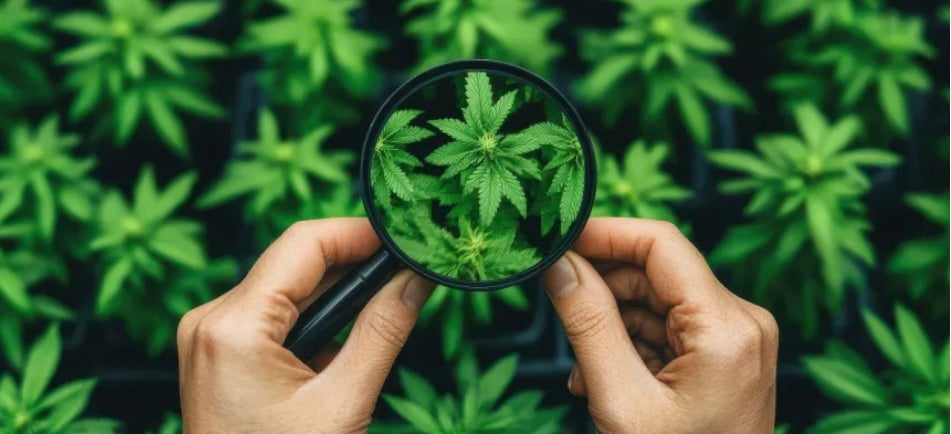A Beginner’s Guide to Understanding Cannabis: Benefits, Uses, and Myths
Curious about cannabis? This beginner’s guide breaks down its history, how it works in the body, and its potential health benefits. Plus, we clear up common myths and misconceptions about this misunderstood plant.
CANNABIS & HEALTH
4/3/20253 min read


A Beginner’s Guide to Understanding Cannabis: Benefits, Uses, and Myths
Cannabis has long been a topic of debate—celebrated by some, feared by others, and often misunderstood by many. As more countries and states embrace legalization, people are becoming increasingly curious about what cannabis really is, how it works, and whether it could offer any benefits. Whether you’re considering it for chronic pain relief, exploring natural wellness options, or simply want to know more, this guide provides a clear, straightforward look at cannabis and its potential benefits.
A Plant with a Long History
Cannabis isn’t a new trend. In fact, it’s been used for thousands of years. Ancient Chinese healers used cannabis for pain relief, while Indian Ayurvedic medicine valued it for promoting relaxation and aiding digestion. In early America, cannabis was even grown for its fibers to make rope and fabric.
But how did this versatile plant go from everyday use to a controversial substance? In the early 20th century, cannabis became heavily stigmatized due to political movements and anti-cannabis laws. Propaganda led many to view it as a dangerous drug, and for decades, its medicinal benefits were ignored. Thankfully, with more research and changing laws, cannabis is starting to make a comeback—especially for its health benefits.
How Cannabis Works in the Body
Cannabis interacts with the body’s endocannabinoid system, a network of receptors that help regulate important functions like pain, mood, appetite, and sleep. The plant contains over 100 different cannabinoids, but the two most well-known are:
THC (tetrahydrocannabinol): This is the compound responsible for the “high” feeling, but it also has medicinal benefits, including pain relief, nausea reduction, and appetite stimulation.
CBD (cannabidiol): Unlike THC, CBD is non-intoxicating and is often used to reduce anxiety, inflammation, and help with sleep issues.
Health Benefits: What Science Says
Studies have shown that cannabis can have several therapeutic benefits, including:
Chronic Pain Relief: Research, including findings from the National Academies of Sciences, indicates that cannabis is effective in managing pain.
Anxiety & Stress Reduction: CBD, in particular, has been shown to help alleviate anxiety without the sedative effects common in traditional medications.
Improved Sleep: Many users report better sleep, particularly with indica-dominant strains.
Epilepsy Treatment: Epidiolex, an FDA-approved drug made from CBD, has been shown to reduce seizures in patients with epilepsy.
Ways to Use Cannabis
Cannabis isn’t just about smoking—it can be consumed in a variety of ways. Here are some of the most popular options:
Edibles: Gummies, chocolates, and beverages offer a smoke-free alternative, though they may take longer to kick in compared to other methods.
Tinctures & Oils: These liquid forms of cannabis are typically dropped under the tongue for fast absorption and precise dosing.
Topicals: Cannabis-infused creams and balms can be applied directly to the skin for localized pain relief and inflammation.
Common Myths About Cannabis
Despite increasing acceptance, misconceptions about cannabis still persist. Let’s clear up a few:
“Cannabis is a gateway drug.” Research shows that cannabis use does not lead to the use of harder drugs for most people (Hall & Lynskey, 2005).
“Cannabis kills brain cells.” Studies show that moderate cannabis use has little to no impact on cognitive function in adults (Meier et al., 2012).
“Cannabis is highly addictive.” While it is possible to develop a dependency, cannabis is far less addictive than substances like alcohol or nicotine (Volkow et al., 2014).
Final Thoughts
Cannabis is no longer just a counterculture trend—it’s becoming a legitimate wellness option for many people. With ongoing research and increasing legalization, understanding cannabis and its effects is more important than ever. Whether you’re considering it for health reasons or simply want to stay informed, gaining knowledge about cannabis helps you make educated and thoughtful decisions.
As research continues to grow, the stigma surrounding cannabis is slowly lifting, offering new opportunities for personal wellness and therapeutic options.
Get in touch
Contacts
754-346-4421
book@drboorstein.com
